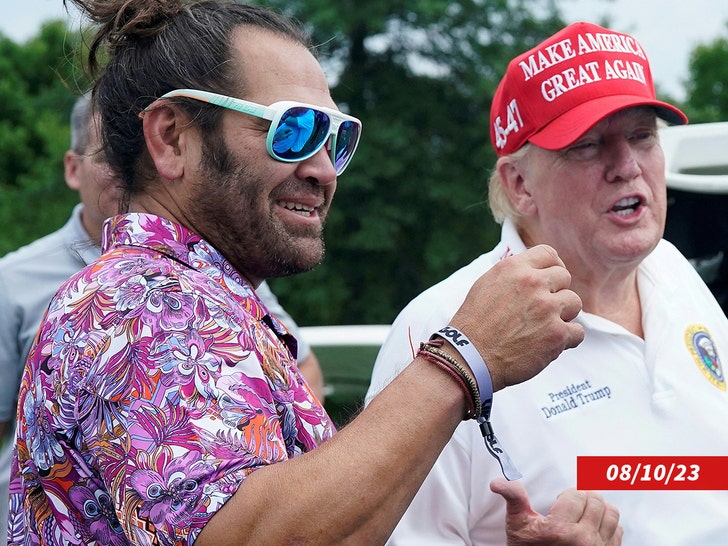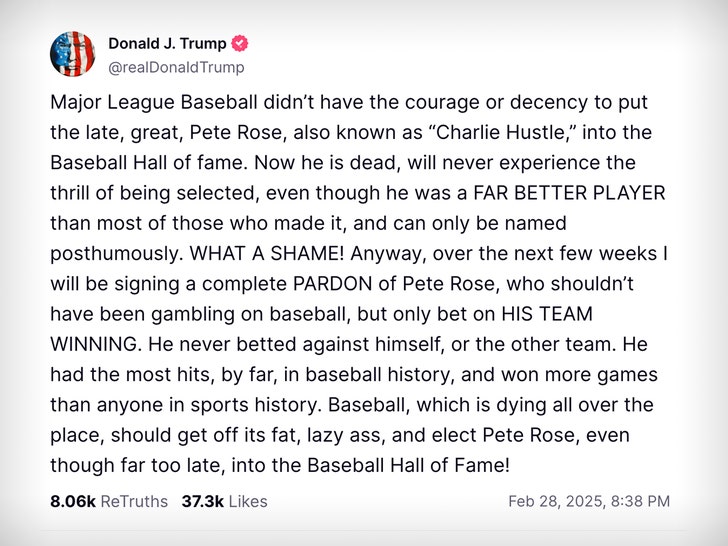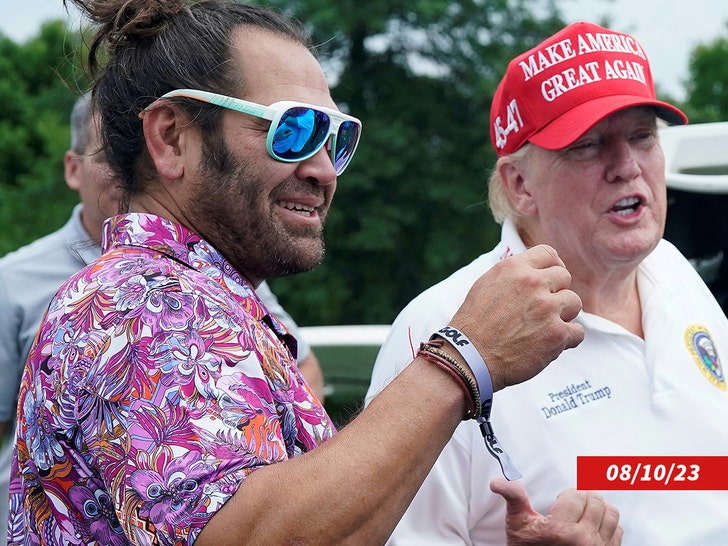The world of sports and politics has always been a complex and often controversial intersection. Where one might expect a clear divide between the two, we find ourselves in a era where athletes and politicians are often intertwined, sparking heated debates and passionate discussions. And in the midst of it all, two names that have become synonymous with controversy and intrigue – Johnny Damon and Donald Trump.

In a recent interview, former MLB star Johnny Damon sparked a firestorm by agreeing with Donald Trump that Pete Rose belongs in the National Baseball Hall of Fame. This statement sent shockwaves through the sports world, leaving many to wonder if Damon’s opinion was a calculated move to gain attention or a genuine expression of his beliefs.

The Unlikely Alliance

Donald Trump’s recent call for MLB to induct Pete Rose into the Hall of Fame, as expressed on his Truth Social page, has sparked a heated debate within the baseball community. The former President’s opinion has now been echoed by former MLB star Johnny Damon, who concurred with Trump’s view in an interview with TMZ Sports.
Damon’s agreement with Trump’s opinion marks an unexpected alliance between the two, given their differing political affiliations. However, their shared stance on Rose’s eligibility for the Hall of Fame highlights the complex nature of the debate surrounding his ban from the sport.
Trump’s initial post on his social media platform called for MLB to “get off its fat, lazy ass” and induct Rose into Cooperstown. Damon, who served on the President’s Council on Sports, Fitness and Nutrition during Trump’s first term in office, echoed these sentiments in his interview with TMZ Sports.

The Politics of Baseball
The debate surrounding Pete Rose’s eligibility for the Hall of Fame has long been mired in controversy, with many arguing that his ban from the sport was excessive. Rose’s initial suspension and ban from baseball for gambling on the sport were met with widespread criticism, and his ongoing exclusion from the Hall of Fame has been a topic of debate for decades.
However, the issue takes on a new significance in the modern era of baseball, where gambling on the sport has become increasingly prevalent. Many argue that Rose’s actions, while wrong, were not as severe as modern-day gambling practices in baseball, which have the potential to compromise the integrity of the game.

Rose’s Ban: A Mistake of the Past?
Pete Rose’s initial suspension and ban from baseball for gambling on the sport were met with widespread criticism, and his ongoing exclusion from the Hall of Fame has been a topic of debate for decades. However, Johnny Damon’s argument that Rose’s actions, while wrong, were not as severe as modern-day gambling practices in baseball has sparked a renewed debate about the fairness of his ban.
Damon’s perspective is that Rose’s actions, while wrong, were not as severe as modern-day gambling practices in baseball, which have the potential to compromise the integrity of the game. He argues that Rose only “bet on his team to win,” and that his actions were not as egregious as those of modern-day players who engage in more severe forms of gambling.

The Evolution of Baseball
The game of baseball has undergone significant changes since Rose’s initial ban, with the increasing presence of gambling in the sport being a major factor. Many teams now have official gambling partnerships, and the sport has become increasingly intertwined with the world of sports betting.
This evolution of the sport has led to a shift in the way that players and teams approach gambling, with many now viewing it as a legitimate aspect of the game. However, this shift has also raised concerns about the potential for gambling to compromise the integrity of the game, and whether Rose’s ban was a necessary step to protect the sport.

Implications for the Game
The debate surrounding Pete Rose’s eligibility for the Hall of Fame has significant implications for the game of baseball. The differing treatment of players who engage in gambling, compared to other forms of misconduct, raises questions about the fairness and integrity of the game.
The potential impact of Rose’s induction on the reputation and integrity of the game is also a major concern. If Rose is inducted into the Hall of Fame, it could be seen as a sign that the game is willing to forgive and forget past transgressions, and that the ban was excessive.
The Double Standard
The differing treatment of players who engage in gambling, compared to other forms of misconduct, is a major concern for many in the baseball community. Players who engage in other forms of misconduct, such as domestic violence or substance abuse, are often subject to stricter penalties and more severe discipline.
However, players who engage in gambling, including Rose, have often been treated more leniently. This double standard raises questions about the fairness and integrity of the game, and whether the ban was a necessary step to protect the sport.
The Future of Baseball
The implications of Damon’s argument for the future of baseball are significant. If the sport is willing to forgive and forget past transgressions, it could set a dangerous precedent for future generations of players. The increasing presence of gambling in the sport, and the potential for players to engage in more severe forms of gambling, raises concerns about the integrity of the game.
Ultimately, the debate surrounding Pete Rose’s eligibility for the Hall of Fame is a complex and nuanced issue that requires careful consideration. The game of baseball has undergone significant changes since Rose’s initial ban, and the sport must continue to evolve and adapt to new challenges and concerns.
Conclusion
In conclusion, Johnny Damon’s recent statement agreeing with Donald Trump that Pete Rose belongs in the National Baseball Hall of Fame has sent shockwaves throughout the sports world. While Damon’s opinion may be a departure from the mainstream, it’s essential to acknowledge the significance of the topic. Rose’s banishment from the Hall of Fame in 1985 was a result of his gambling activities, which many argue was a personal issue rather than a reflection of his on-field performance. Damon’s stance highlights the ongoing debate surrounding Rose’s eligibility and the blurred lines between personal and professional conduct.
The implications of this issue extend beyond the realm of baseball, touching on the broader themes of morality, ethics, and the public’s perception of athletes. As the sports world continues to grapple with the complexities of this issue, it’s crucial to consider the long-term consequences of allowing Rose to be enshrined in the Hall of Fame. Will it set a precedent for other athletes involved in similar controversies? How will it impact the integrity of the game and the values it represents? As the debate rages on, one thing is clear: the decision to allow Rose into the Hall of Fame will have far-reaching repercussions that will be felt for generations to come.
In the end, Johnny Damon’s bold statement serves as a reminder that the line between right and wrong is often gray, and that the public’s perception of athletes is shaped by a complex interplay of factors. As we move forward, it’s essential that we continue to engage in this critical conversation, ultimately arriving at a decision that reflects the values of the game and the public’s expectations. The fate of Pete Rose’s Hall of Fame induction hangs in the balance, and the outcome will be a defining moment in the history of baseball. Will we remember this moment as a beacon of redemption, or a betrayal of the game’s highest ideals? Only time will tell.
